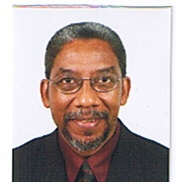|
Judge Calls for Campaign Finance Rules:
What Campaign Finance Rules Do We Want On May 15, a High Court Judge order a former Government Minister and senior party official to repay $1.5M to a prominent businessman and party financier. The senior party official claimed that the money was a donation for the purpose financing the party’s 2007 General Election campaign. Going further, the Judge called for the ‘veil of secrecy and anonymity” to be “removed and there should be full disclosure of financial contributors, with caps placed on the amounts which can be received by a political party from individuals, companies or institutions”. He said further that the “entrenched public perception” was that “elected officers can be sold to the highest bidder and that campaign contributions are the functional equivalent of bribes which ensure that favourable treatment” to financiers by Government. The Judge suggested that the” …absence of campaign finance regulations (had) led to a culture of kickbacks and corruption.”. He called for “election campaign finance reform” to be effected as matter of urgency”. Call For Campaign Finance Regulation Not New The call for campaign finance rules is not new. Over the years, several citizens, political commentators and transparency advocates have demanded disclosure and regulation of political party financing and election campaign financing. Some political parties made election promises to implement political and electoral financing regulation and the COP organised a public symposium on the issue. The Elections and Boundaries Commission (EBC), with assistance from Elections Canada, started discussions with all political parties to develop a system for Registration of Political Parties and Party and Campaign Financing Rules. A Joint Select Committee of Parliament examined and produced a report with suggestions for introducing such regulation after examining similar rules in Latin American countries. The present Party-in-Power also made promises that it would introduce campaign finance regulations. A lot of talk about party financiers and corruption benefitting them has been bandied about on the political platforms and even in Parliament. Lots of threats of locking up politicians and financiers for corruption have been trumpeted by one regime and the next. But, regulation of the financing of political parties and their campaigns remains only talk, with no action. Current Political Finance Rules In the laws of Trinidad and Tobago, the only references to political financing are to be found in the Representation of the People Act, Ch. 3:01 (ROPA) and the Trade Union Act, Ch88:02 (TUA). Under the ROPA, political parties are not even registered legal organisations. Parties have no legal or corporate status. All they are required, by this law to do, is to register a symbol. The only provisions of this law, the country’s Electoral Law (section 52), is a requirement for a candidate in any election (General or Local) to file a Return (Statement) of Election Expenses after the election. The candidate must account for the receipt and spending of up to $50,000 on his election campaign. But, the political party can receive and spend millions of dollars on the same election campaign in which each candidate is to account for only monies raised and spent by them personally. Under the TUA (section 33), trade unions are allowed to collect and spend money for “certain political purposes” i.e.
This is the extent of the current law regarding party and campaign financing. There is NO requirement for any political party to disclose Who is financing it and its Campaigns and How Much it receives, or any financier contributes. No political party is required to disclose How Much it spends. Political Financing Rules Do Not Necessarily Stop Corruption In many countries where political finance regulation exists, there are different kinds of rules. In some, reporting of sources of financing and expenditure is required. But, there are No Limitations on Contributions or Spending. In others, there are Limits on both contributions and spending. However, the contribution limits may only be Minimum Limits for reporting purposes i.e. only contributions above a specified amount are to be accounted for. In the USA, for example, the existence of Campaign Financing Rules does not prevent big business interests from financing parties and candidates to the tune of Billions of dollars or financing Campaign advertisements. IN 2014, it was reported that more than $4 Billion was raised and spend in mid-term elections, doubling the $2 Billion spend in the 2012 Presidential Election. Campaign financing came from Energy Corporations (78%), Wall Street and Hi-Tech giants. The spending on the 2016 Presidential Election exceeded the 2014 spending. The recent Cambridge Analytical exposure also revealed the millions of dollars spent by political parties in the Caribbean and elsewhere on election campaigns and to Election Campaign Strategists and Advisors and companies to try and manipulate voters. The recent revelations about Cambridge Analytica activity right here in the Caribbean show that corruption and promises of corrupt benefits are a part of these election campaigns and the activities of these so-called strategists. The existence of political financing regulation does not, by itself, prevent corruption in politics. And, even where regulation exists, if political parties have no legal personality (as in our present electoral system) only individuals (not the parties) can be prosecuted for corruption. Finance the Process, Not the Parties and Candidates There is another approach. Instead of regulating the financing of political parties, which still allows financiers and particularly big business interests to influence the policies of parties and governments, one way of reducing the influence of money in the electoral process is to Finance the Process, Not the Parties and Candidates. For the electoral process to reflect the will of the Majority and not the Will of the moneyed Minority is to uphold the Right of the Electors to an Informed Vote; not a vote manipulated by big money campaign ads and voter manipulation by Election Industrialists like Cambridge Analytica. To ensure an Informed Vote, equal media time for all candidates, mass availability of manifestos and candidate profiles and programmes and opportunities for electors to assess candidates in Town Hall meetings, etc. must be facilitated. No political party or candidate must have an advantage based on its ability to raise more money than others. All these opportunities if they are financed by the Election Authorities can be provided to ensure information is available to the electors and there is no unfair advantage to any party or candidate. If the money advantages are removed, then electors Right to Elect and to be Elected can be guaranteed. At present, because of the spending of big money in elections, small parties and independent candidates are kept out of elections or at a disadvantage. Funding the Process will ensure that elections are free and fair, as the opportunities for participation are available to all who wish to participate. The monopoly of so-called big or major parties will be broken. Funding the Process will ensure that electors can better choose representatives whose objective is really to represent the interests of the electors and not their own self-interest or the narrow interest of special interests and financiers. What this decision by the Judge reminds us of is the very poor state of our Electoral and Political Processes and the urgent Need to Renew these Process in the direction of ensuring that Trinbagonians can directly decide matter that concern them and affect their lives. There is no other way to ensure that the citizens can participate in governance and Democracy is strengthened. Clyde Weatherhead A Citizen Fighting For Democratic Renewal of Our Society 19 May 2018 19/5/2018 08:45:56 pm
I am in full agreement of the need for Campaign Reform. As well as other reforms in Trinidad and Tobago. Comments are closed.
|
AuthorI am a appalled at the loss of the simple skills of discussing ideas and sharing Opinions to DEEPEN ANALYSIS and UNDERSTAND DEVELOPMENTS to ARRIVE AT SOLUTIONS. Archives
April 2024
Categories |

About Clyde Weatherhead
Clyde has been involved in public life as a political activist, a trade unionist, Lawyer, Teacher and Author |
Connect With Clyde
Write to Clyde on Facebook Visit Clyde's Author Page on Amazon Go To Discussion on Facebook For Employment Relations Issues |


 RSS Feed
RSS Feed